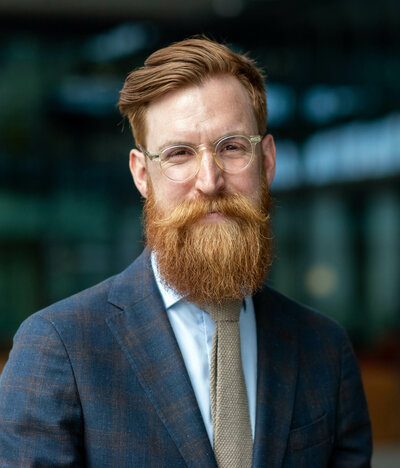Bas Overvelde
Department / Institute

RESEARCH PROFILE
Bas Overvelde leads the Soft Robotic Matter Group (located at AMOLF). His group focuses on research at the crossroads of soft robotics and mechanical metamaterials. Combining computational, experimental and analytical tools, the group explores how shape, nonlinearities and feedback can be harnessed to embody intelligent behavior in mechanical systems. In particular, the group works on the design, fabrication and fundamental understanding of robotic materials that are capable of autonomously adapting to – and even harnessing – variations in their environment. Along these lines, the group aims to uncover principles that help us understand how such nonlinearities and feedback can bring about complex – but useful – behavior in soft actuated systems.
Our aim is to embody as much intelligence in in soft robots and metamaterials as possible, to create fully autonomous systems.
ACADEMIC BACKGROUND
In May 2016, Johannes T.B. (Bas) Overvelde became a tenure-track Group Leader @AMOLF an academic institute for fundamental physics with high societal relevance in Amsterdam, where he started the Soft Robotic Matter Group. Overvelde received tenure in January 2021. In September 2020, Overvelde was also appointed as Associate Professor at Eindhoven University of Technology (TU/e). As part of the Dynamics and Control Department, Overvelde works part-time at the Institute for Complex Molecular Systems.
Between 2004 and 2012, Overvelde studied applied physics and mechanical engineering at the Delft University of Technology, where he received both his BSc and MSc degrees in mechanical engineering cum laude. In April 2016, Overvelde finished his PhD in applied mathematics at Harvard University under the direction of professor Katia Bertoldi at the John A. Paulson School of Engineering and Applied Sciences. Overvelde’s PhD research focussed on harnessing compliance and instabilities in engineered structural materials and devices to achieve function.
Recent Publications
-
Jackson Kyle Wilt,Johannes T.B. Overvelde,Corentin Coulais
Shape Memory Soft Robotics with Yield Stress Fluids
Advanced Intelligent Systems (2023) -
Annemijn Vis,Maziar Arfaee,Husain Khambati,Mark S. Slaughter,Jan F. Gummert,Johannes T.B. Overvelde,Jolanda Kluin
The ongoing quest for the first total artificial heart as destination therapy
Nature Reviews. Cardiology (2022) -
Agustin Iniguez-Rabago,Johannes T.B. Overvelde
From rigid to amorphous folding behavior in origami-inspired metamaterials with bistable hinges
Extreme Mechanics Letters (2022) -
Lucas C. van Laake,Sevda Malek Kani,Johannes T.B. Overvelde
A fluidic relaxation oscillator for reprogrammable sequential actuation in soft robots
Matter (2022) -
Johannes T.B. Overvelde
Popping, locking robots
Nature Materials (2021)
Current Educational Activities
Ancillary Activities
No ancillary activities